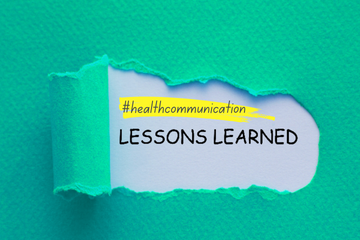Lessons learned: Politicians who communicate with humility are more likely to get votes

You’re reading Lessons Learned, which distills practical takeaways from standout campaigns and peer-reviewed research in health and science communication. Want more Lessons Learned? Subscribe to our Call to Action newsletter.
Most Americans are feeling intense frustration and distrust toward politicians and the larger U.S. political system. One potential way that politicians might improve public attitudes towards them is by communicating with intellectual humility, or an awareness of their intellectual limitations. However, it’s not clear how much intellectual humility people think politicians should have in different situations. A recent study published in the Journal of Experimental Social Psychology explored this through two experiments:
- Experiment one: 477 participants reported their ideal level of intellectual humility for a made-up politician who was either from their own political party or the opposing party, and in either a competitive (e.g., campaigning in a difficult reelection) or cooperative (e.g., providing emergency services after a natural disaster) situation.
- Experiment two: 843 participants rated warmth and competence of made-up politicians that were communicating with low or high intellectual humility in either cooperative or competitive situations. Participants also indicated how likely they would be to vote for the made-up politician. Additionally, participants were asked to rate what an ideal level of intellectual humility was for both Joe Biden and Donald Trump, as well as their perceptions of how much intellectual humility they actually show and how likely they were to vote for them.
What they learned: People think that all politicians, especially ones outside their political party, should display high amounts of intellectual humility. When someone sees a politician as more intellectually humble, they are more likely to say that they warm and competent and are also more likely to vote for them, regardless of political party. This is true for both made-up politicians and Joe Biden/Donald Trump. The first experiment also revealed that people want to see more intellectual humility from politicians from their party in cooperative (vs. competitive) situations.
Why it matters: This study highlights the value of communicating with intellectual humility, especially in political situations where not everyone may agree.
➡️ Idea worth stealing: Communicate with humility in situations where you want to prioritize people’s perceptions of your warmth and competence. For example, if you are talking about a controversial topic to an audience that you want to win over, saying “I believe” can communicate more humility than saying “I know.”
What to watch: If scientists reveal more nuanced relationships in future studies with other groups of communicators, such as public health officials.


